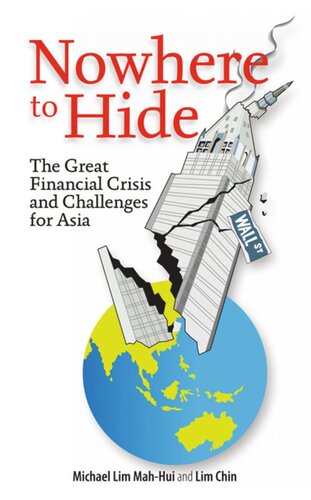

Most ebook files are in PDF format, so you can easily read them using various software such as Foxit Reader or directly on the Google Chrome browser.
Some ebook files are released by publishers in other formats such as .awz, .mobi, .epub, .fb2, etc. You may need to install specific software to read these formats on mobile/PC, such as Calibre.
Please read the tutorial at this link: https://ebookbell.com/faq
We offer FREE conversion to the popular formats you request; however, this may take some time. Therefore, right after payment, please email us, and we will try to provide the service as quickly as possible.
For some exceptional file formats or broken links (if any), please refrain from opening any disputes. Instead, email us first, and we will try to assist within a maximum of 6 hours.
EbookBell Team

4.3
38 reviewsThis book takes a multi-disciplinary approach to the great financial crisis of 2007-09. It combines the disciplines of economics, finance, sociology and politics to analyse the causes, consequences and challenges of the crisis. The authors propose that the causes of the crisis should be understood at three inter-related levels - the level of theory and ideology; the level of financial industry practices and malpractices; and finally the level of structural imbalances in the international economy. Above all, the book is historical and holistic in perspective. This book is an excellent read for the critical layman interested in understanding the causes that underlie the global financial crisis. The authors combine the inquisitive and critical mind of a scholar and the lucid writing style of a journalist. The book provides a perspective on the crisis that is both practical and down to earth and at the same time, rigorous and holistic. Khor Hoe Ee, Chief Economist, Abu Dhabi Council for Economic Development, and former Assistant Managing Director, Economics, Monetary Authority of Singapore The authors trace the rise of finance and its domination over the real economy, the consequences of financial innovation and deregulation for systemic fragility, and the failure of conventional economic and financial theory to analyse and anticipate the consequent dangers. Their main original contribution is to relate these Western market developments to recent trends in the East Asian region and to call for appropriate systemic reforms, not only to avoid similar future crises, but also to address other underlying development and analytical problems. K.S. Jomo, Assistant Secretary General, Department of Economic and Social Affairs, United Nations In linking wealth and income distribution to financial instability, this book makes an important point that is often missed in the debate on the crisis. Central Banks have become strongly opposed to the idea of accommodating wage demands with the help of monetary easing, but they have been increasingly tolerant, or even supportive, of debt-financed consumption and asset inflation. Indeed, by serving to concentrate wealth further in the hands of a small rentier class, while protecting that class from the risks of debt defaults, they are only adding to systemic pressures that give rise to serious financial crises. Yilmaz Akyuz, Special Economic Advisor, South Centre, and former Chief Economist at United Nations Conference for Trade and Development